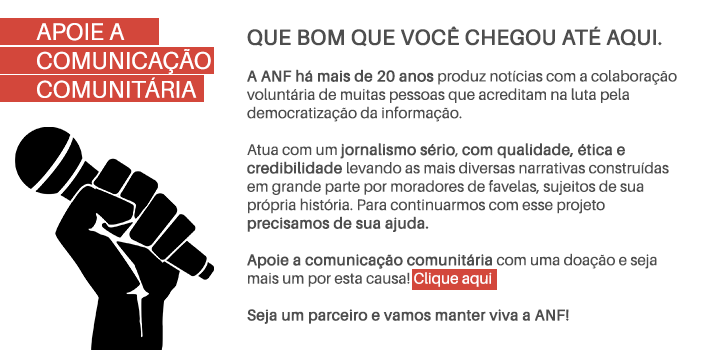When a child born is born in a favela, its future is almost always decided – and it is favela for life. Very few people born in the Brazilian favelas manage to escape the borders of social exclusion, poverty – and violence. And not without many human costs. Interview with Caio Ferraz, Brazilian sociologist, who was born in the favela Vigario Geral, but had to flee for his life, because he demanded a better future for the favela-people. After 15 years of asylum he is finally returning to Brazil to continue his strive
By Anne Sofie Hoffmann Schrøder, journalist ANF
Carnival, Rio de Janeiro, March, 2011:
The world’s biggest carnival is capturing Rio de Janeiro, covering the centre of the city in glitter, glamour and giant spectacular shows, with the tourists, media, rich and famous as spectators. Meanwhile, in another part of Rio, an ecstatic party is taking place, despite the lack of glamour, tourists and media coverage. In the favela Mangueira (provider of many of the carnival dancers and -musicians for the touristic shows in the centre) the people are celebrating their sambaschool.
Suddenly the military police enters in big chariots, driving threatening through the happy crowd, waving with their machine guns. In a few seconds the party turns into a battlefield.Panic, screaming young mothers with crying babies hanging around their neck, everyone escaping, trying to save themselves from the bullets.
Military police entering carnival-party in the favela Mangueira, March 2011:
httpv://www.youtube.com/watch?v=ME5rurtDTbU&feature=related
Military police entering carnival-party in the favela Mangueira, March 2011:
httpv://www.youtube.com/watch?v=ghsO3anJq04
In the middle of the fire, is Brazilian sociologist, Caio Ferraz, witnessing the same brutal police he had to flee from 15 years ago:”I was about a to cry that night in Mangueira”, Caio Ferraz tells seriously: “It was like a film in my mind.” A film about his childhood and youth in the favelas, a film that eventually made him flee his home country, fearing for his life: And a film that has finally made him want to come back to Brazil to rewrite the script of violence and social injustice in the favelas.
Born to live in a better future
Caio Ferraz was born in Rio Janeiro in the year 1968, the year where the military dictatorship took power in Brazil and imprisoned the Brazilians’ freedom. This year the law ACT #5 was implemented law and prohibited all freedom of expression, marking the beginning of the darkest time in Brazil, the military dictatorship from 1968 – 1985.
During this period Caio grew up in Vigario Geral, a small favela in the outskirts of Rio de Janeiro with around 12.000 residents, and as one of twelfth children in a family in deep scarcity.
Now he is a well-known, wealthy sociologist, poet and construction-engineer, living in the United States.
“The kind of travel that I have made in my life is almost impossible for a person growing up in favela”, he says seriously – and smiles: “It feels liking going to the moon and back again – without paying the ticket”.
Now he wants to make the people from the favela dream about doing the same thing.
Although Caio’s family was very poor, and although his parents worked really hard, they never moved out of poverty,
“So I decided never to become a construction-worker, I wanted to be an engineer” Caio tells, “I wanted to be the one making the decisions”. So he went to school and strived to always be the best. He studied all-day long, even if he had had nothing to eat. “Since I was born, I knew I was not meant to be surrounded by poverty.” But things became more difficult.
The druglords and the military police
The Brazilian druglords” Red Commando” and “Third Commando” arised during the military dictatorship. In the end of the regime between 1983-1985, things started to change in the favela Vigario Geral.
“Suddenly a bunch of drugs and weapons entered my favela”, remembers Caio Ferraz: “It was a very crucial point in my life.”
Because with the druglords came the military police trying to get their deal of the big money that had arrived with the drugs. The police traced the drugdealing via the radio. Suddenly life became much more violent within the favela that went from being a place abandoned by the rest of the world, to become the battlefield between the drugdealers and the police.
“Everyone was walking on a very thin line,” says Caio “Who were you going to be in favour of – the police or the drugdealers?”, says Caio – pointing at the real question: Who was it more deadly to become enemies with. Standing idly by while these two different violent forces conquered the favela, was very difficult. If someone got in the way of the police or the druglords, neither of them were slow to apply their own laws – which always implied the ancient “an eye for an eye”. The government remained silent, while a literary war took place in the favelas.
But Caio continued going to university, while a lot of his friends became small-time gangsters, earning their money on selling drugs. Caio had nothing and spent all day studying. His friends had already small drugbusinesses.
“I tried to do right, but everytime I did, everyone else around me proved something else.”, remembers Caio. But he was not venal for involving with neither the drugdealers nor the police:
“I don’t believe in anyone, who wears a gun“, he states seriously. Meanwhile the world outside the favela became more and more condemnatory towards the favelas and the people living in them, categorizing every resident as a criminal and bad guy. Caio Ferraz had a hard time living with prejudices against the favelas:
“We do not have access to education, clean water, school, food, no power,” he says angrily: “and you are telling me I am a bad guy?”, he asks and continues: “The drugs and the violence were not planted in the favelas by its own people. It came from the outside.”
Massacre and threat against Caio
One day happened the massacre, which today is named the Vigário Geral massacre in August 29 1993, the same time as Caio Ferraz graduated from university.The police had traced down a big drugdeal via the radio. While trying to get the drugs, four policemen were killed by the drugdealers.
”This created a big fire”, tells Caio: ”The policementality is like: If you mess with me, you mess with all my people”. It lead to a giant death squad, which resulted in 21 innocent people dead, including a 15-year old girl.
Caio Ferraz and the rest of the favela were mortified. Caio decided to create the CASA DA PAZ, house of peace, in order to create a better future for the children in the favela – a future without drugs, violence and corruption.
”CASA DA PAZ was an opportunity for the children to dream, express themselves and take another course of life”, tells Caio. CASA DA PAZ was an umbrella-organisation, uniting more than 1000 children within different organisations and NGO’s.
”I said come ”come over here, join in, let us make a difference” – I invited everyone to come and play”, says Caio with proud. The project attracted many creative people wanting to make a social change, among them the famous actor Augusto Boal, – and the media’s attention. Hence Caio Ferraz attended a popular television-show on TV GLOBO, in which he critized the military police for being brutal, corrupted and taking advantage of the people in the favela. Shortly after this he received serious death threats from the police. Thus he had to flee from Brazil and received asylum in U.S. This was year 1995.
The dream about a better future
Today, after 16 years of asylum in the United States, Caio Ferraz is a rich man. And he is yearning to come back to Brazil to continue the dream he had, when he created CASA DA PAZ. That night in the favela Mangueira, during this year’s carnival, reminded him that his home country still rejects and abuses its own children, the people in the favela.
”My dream is make more children in the favela use the free expression, we have got today in Brazil, to demand their rights, ” says Caio Ferraz passionated, ”I want them to dream about a better life, choose another course in life – and fight for it.”















